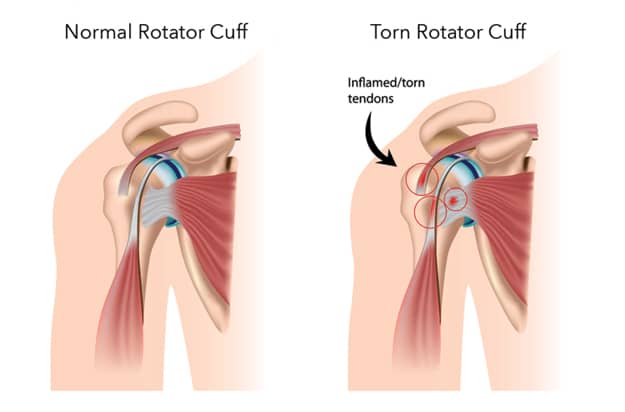 Your Diagnosis… Your doctor will conduct a physical exam to locate the problem. To provide you with an accurate diagnosis, they will press on various parts of your shoulder while moving your arm into multiple positions. Your doctor will also assess the strength of the muscles surrounding your shoulder. The following will address other things to know about your rotator cuff injury…
Your Diagnosis… Your doctor will conduct a physical exam to locate the problem. To provide you with an accurate diagnosis, they will press on various parts of your shoulder while moving your arm into multiple positions. Your doctor will also assess the strength of the muscles surrounding your shoulder. The following will address other things to know about your rotator cuff injury…
Imaging Tests
- X-Rays – While an injury to your rotator won’t appear on an x-ray, these images can show bone spurs and other potential sources of pain, like arthritis. Ensuring you have an accurate diagnosis so you can get proper treatment.
- Ultrasound – Using sound waves, ultrasounds are able to produce images of structures inside your body, including soft tissues like tendons and muscles. The more dynamic testing assesses the structures of your shoulder while moving. It also gives your doctor the opportunity to quickly compare your healthy shoulder with your injured one.
- MRI – Using radio waves and a strong magnet, images taken during an MRI display every structure in your shoulder in detail. The quality of the images is dependent on the quality of equipment used to take them.
Treating Your Injury
- The RICE (rest, ice, compress, elevate) method and physical therapy are more conservative treatments but for some, that is all they need to recover from an injured rotator cuff. However, more severe injuries may require surgery.
- Injections – If the conservative methods aren’t alleviating your pain, your doctor might suggest a steroid injection into your shoulder joint, specifically if the pain has interfered with your sleep, daily activities, or physical therapy. These injections can be helpful but they should be used with caution as they can result in the weakening of the tendon and could reduce the chances of a successful surgery should that be needed in the future.
- Therapy – Most doctors recommend physical therapy as your first treatment. Your physical therapist will have you do exercises that are tailored specifically to your injury. You can expect to see your flexibility and strength be restored in your shoulder. Physical therapy is also crucial to your recovery if you have rotator cuff surgery.
- Surgery – There are several options available for rotator cuff injuries. These include:
- Anthroscopic Tendon Repair – During this procedure, surgeons will insert a tiny camera, known as an arthroscope, and tools through small incisions enabling them to reattach the torn tendon to the bone.
- Open Tendon Repair – Depending on the circumstances, an open tendon repair might be a better option. These surgeries require your surgeon to work through a larger incision in order to reattach the damaged tendon to the bone.
- Tendon Transfer – If your torn tendon is excessively damaged and cannot be reattached to the bone, surgeons might decide to use a nearby tendon as a replacement.
- Shoulder Replacement – In some instances, rotator cuff injuries are massive and will require a shoulder replacement surgery. In order to improve the stability of the artificial joint, a reverse shoulder arthroplasty procedure is used to install the ball portion of the artificial joint onto the shoulder blade and the socket portion onto the arm bone.
Clinical Trials Put Solutions to Test
New treatments, interventions, and tests are being clinically studied in order to prevent, detect, and effectively manage and treat rotator cuff injuries.
Lifestyle Adjustments & Home Remedies
Typically, the pain caused by a minor rotator cuff injury will go away on its own, provided it is being properly cared for. This includes stopping activities or movements that are causing the pain. You should limit heavy lifting and/or overhead activity until your shoulder pain is gone. We suggest using the RICE method as it can also help the pain subside. Over-the-counter pain relievers, like ibuprofen or acetaminophen can also make a difference.
What Can You Do?
Prior to you appointment, you may take the time to write down your answers to the following questions…
- When did your shoulder pain begin?
- What movements or activities trigger your shoulder pain?
- Have you injured your shoulder before?
- Do you have any other symptoms aside from shoulder pain?
- Does the pain travel down your arm beyond your elbow?
- Is your shoulder pain connected to pain in your neck?
- Do your daily activities, including your job or hobbies, worsen the pain?
Expectations of Your Doctor
You can expect your doctor to ask you many detailed questions. By being prepared to answer them, you can allot time to go over any points you feel need more time. Your doctor will likely ask you questions pertain to..
- The exact location of your pain and if it affects any surrounding areas
- The severity of your shoulder pain
- Movements and activities that aggravate and/or alleviate your pain
- If you have ever experienced numbness or weakness in your arm
For persistent pain that is interfering with your daily activities, see a rheumatologist to make the correct diagnosis and begin the proper treatment.
We Treat Patients With Rotator Cuff Issues and Other Shoulder Injuries
Treatment for rotator cuff problems typically follows a progressive approach, starting with conservative methods like rest, ice, and anti-inflammatory medications to reduce pain and swelling, followed by physical therapy exercises that focus on restoring flexibility and strengthening the shoulder muscles. If symptoms persist after several months of conservative treatment, doctors may recommend corticosteroid injections to temporarily reduce inflammation, though these are used sparingly due to potential tendon weakening with repeated use. For more severe tears or cases that don’t respond to non-surgical approaches, surgical options including arthroscopic repair, mini-open repair, or in rare cases, complete shoulder replacement may be necessary, with the specific technique depending on the tear size, patient age, and activity level. Following any treatment approach, a carefully structured rehabilitation program is essential for restoring shoulder function and preventing recurrence, with full recovery potentially taking several months to a year depending on the severity of the original injury and the treatment method employed.
> Learn More
Contact Us (859-331-3100) For More Information to Request an Appointment

—
 About Tristate Arthritis and Rheumatology
About Tristate Arthritis and Rheumatology
Tristate Arthritis and Rheumatology is first and largest Rheumatology practice in the Northern Kentucky area. Founded by Dr. Arthur Kunath in 1986, our rheumatology practice now consists of six doctors who are board certified in both Internal Medicine and Rheumatology and a Physician Assistant. Patients see one doctor (except in emergencies), thereby assuring continuity of care and an individualized doctor-patient atmosphere giving the physician the ability to establish personalized and detailed relationships. Our doctors have received numerous awards, including being listed as “Top Doctors” in Cincinnati Magazine, receiving the Patient’s Choice Award, the Most Compassionate Doctor Award, and the American College of Rheumatology’s “My Doc Rocks” award.
>> Learn More


